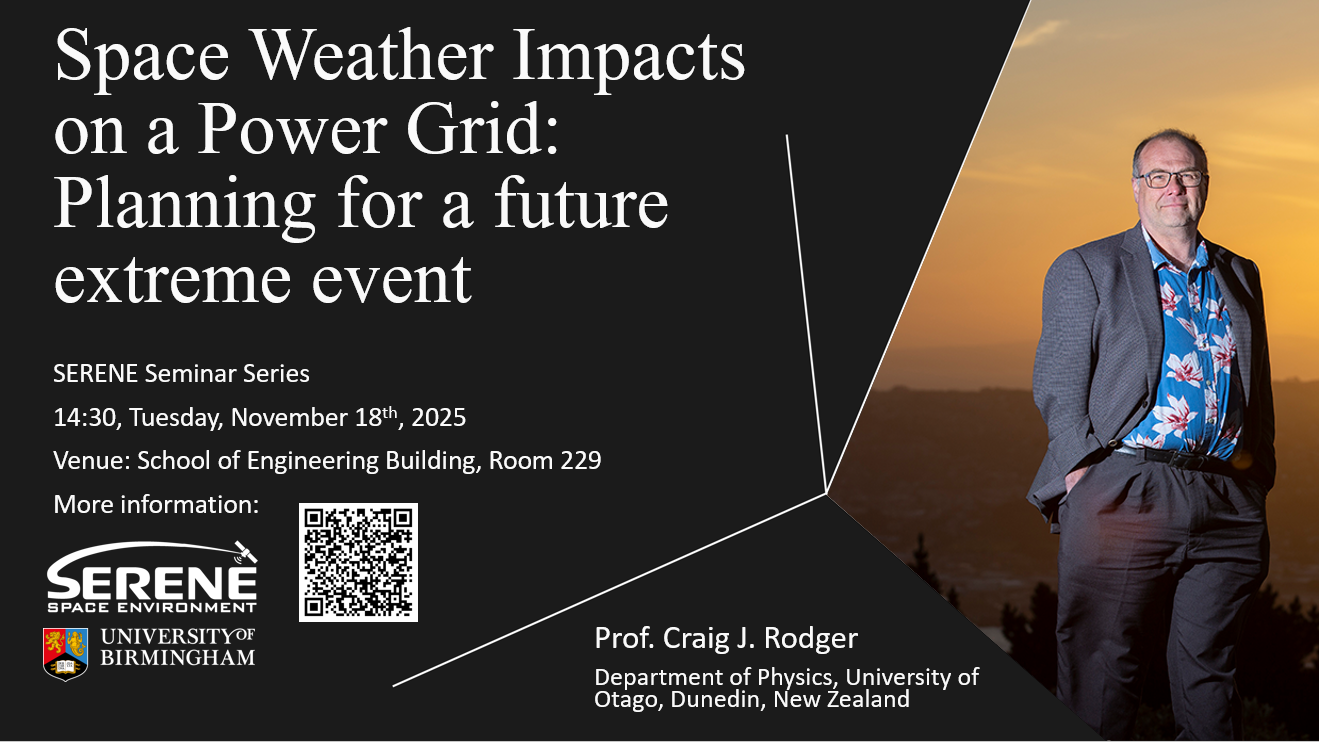SERENE Seminar Series: Space Weather Impacts on a Power Grid
Tue 18 November 2025, 14:30 - 16:00
SoE Building (Y8) - Seminar Room 229
Space Weather Impacts on a Power Grid: Planning for a future extreme event, plus update after the "Gannon" G5
Prof. Craig J. Rodger
Department of Physics, University of Otago, Dunedin, New Zealand.
Space Weather is an exciting sub-field inside the wider disciplines of Space and Solar Physics. "Space Weather" is a generic term most commonly used to describe the links where processes which start on the Sun drive activity in and around the Earth. Many nations are carefully considering the level of space weather risk to their critical systems. Due to the support of the New Zealand power grid owner operator my project, Solar Tsunamis, has been able to rapidly advance research around the risk posed by space weather to New Zealand infrastructure. The main focus has been around determining the "worst case" situation in an extreme Space Weather disturbance and developing potential mitigation practises.
In early May 2024 a massive sunspot grouping launched roughly 6 "solar tsunami" towards the Earth. The arrival of the first solar tsunami triggered a "G4" geomagnetic storm, producing aurora to mid-latitudes in the UK and New Zealand. Roughly 6 hours into the storm additional solar tsunami impacts caused the storm to intensify, reaching the largest storm threshold ("G5"). During this geomagnetic storm the New Zealand electricity grid operator declared a Grid Emergency and switched circuits to reconfigure the grid in order to mitigate the space weather risk. This was the first time the New Zealand-wide mitigation strategy was employed to help protect the grid from space weather. The adoption of the measures generated international interest.
In this presentation I will discuss the space weather hazard to electrical power grids, and talk about the events around the G5 storm. While my focus is on New Zealand, my country spans the same geomagnetic latitudes as the United Kingdom, such that the findings and ideas should be relevant to your side of the world!
